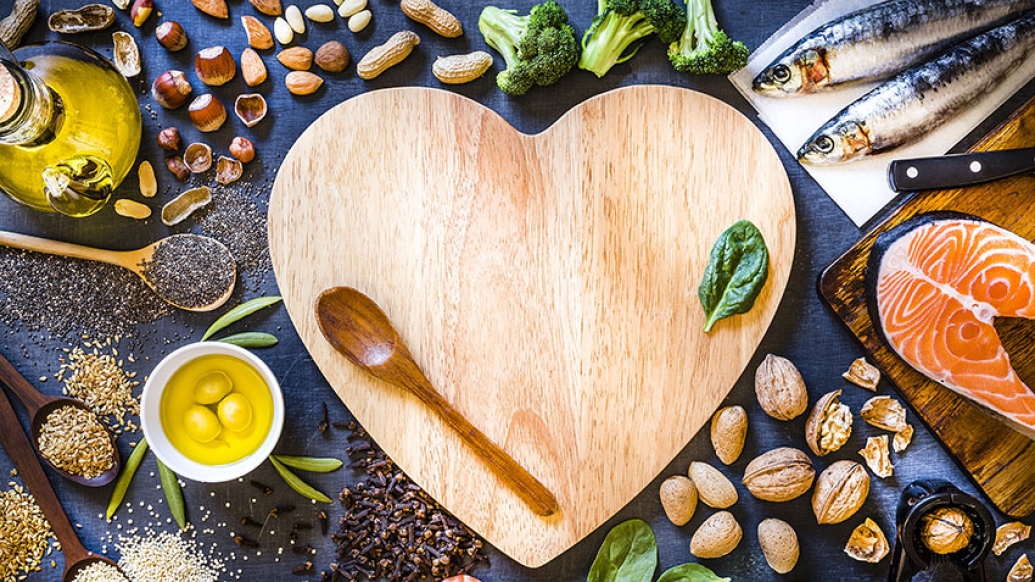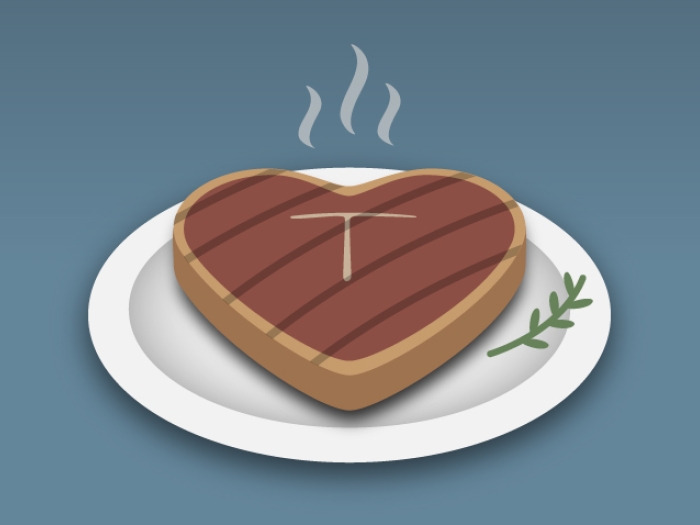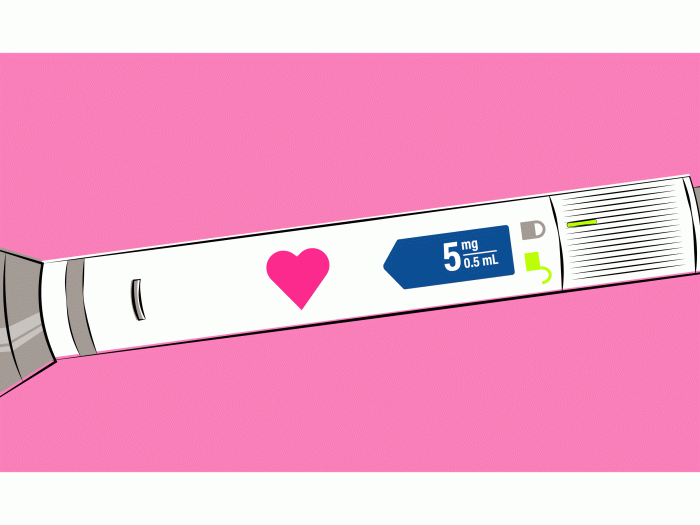Consuming foods high in omega-3 is beneficial for heart patients in a very different way than for those without heart issues. A registered dietitian nutritionist explains.
5:00 AM
Author |

We've all heard about the benefits of consuming foods high in omega-3 fatty acids, but what exactly are those benefits and who stands to gain the most? Faith Mather, a registered dietitian nutritionist at the Michigan Medicine Frankel Cardiovascular Center, says omega-3 fatty acids can benefit groups of individuals in different ways.
Omega-3 is an essential fatty acid and a type of unsaturated fat, Mather says. "The body needs it in small quantities and since our bodies can't produce it, the only way to get omega-3 is through our diet."
If you have an existing heart condition or are at risk for heart disease, omega-3 fatty acids can help fight inflammation that can further damage blood vessels, Mather says.
"Recent studies and systematic reviews have found a lower risk of heart failure, coronary disease and fatal coronary heart disease in heart patients with higher consumption of fish and higher dietary omega-3s."
MORE FROM MICHIGAN: Sign up for our weekly newsletter
What's surprising is that for the general population, these cardio-protective effects don't necessarily apply, she says, but that doesn't mean you shouldn't bother.
A different kind of benefit
For those who don't have a heart condition or who are not at risk for heart disease, consuming foods high in omega-3 fatty acids is beneficial for an entirely different reason.
Foods that are high in omega-3 fatty acids like salmon are typically better choices than foods high in saturated fatty acids like bacon, cheeseburgers or fried foods. "By substituting foods high in omega-3 for foods otherwise high in saturated fats, you're naturally making healthy choices," Mather says.
Good sources include fatty fish such as salmon and mackerel, as well as flaxseed and flaxseed oil, canola oil, soybeans and soybean oil, unsalted nuts, green leafy vegetables, avocados and legumes.
"Because these foods also tend to be lower in calories, they help in achieving and maintaining a healthy weight," Mather says.
Saturated versus unsaturated
Understanding the difference between saturated and unsaturated fats helps in the discussion of omega-3 fatty acids.
All fat molecules found in food have long tails that may be saturated (completely filled with hydrogen atoms) or unsaturated (not completely filled with hydrogen atoms). When the fatty acid tail is filled with hydrogen, or saturated, the tail is stiff and rigid. Rigid tails can block off arteries and lead to heart disease, Mather explains.
Comparatively, unsaturated fatty acid tails are not rigid and can move or flow. Unsaturated fats are termed healthy fats because they provide antioxidant effects in the body while remaining fluid.
The bottom line
For omega-3 fatty acids, the FDA recommends 2 grams (2000 mg) per day, which is the amount Mather prescribes to her heart patients.
"For some, it's difficult to meet the appropriate level with food, so a fish oil supplement might be recommended," she says. "Heart patients should talk with their healthcare provider to decide if a supplement is right for them and to be sure they're using one that has been verified and has approximately 1 gram or more of omega-3."
If you're not at risk for heart disease, the jury is still out on how much omega-3 fatty acids you should shoot for in a day. But the bottom line?
"Eating omega-3-rich foods is better for anyone with heart issues or anyone at risk for heart disease. If that's not you, remember, foods that contain omega-3 are better for you than eating processed foods or those high in saturated fats. Choosing omega-3 foods is a good substitute for unhealthy foods. It all points to a healthy diet."
Like Podcasts? Add the Michigan Medicine News Break on iTunes or anywhere you listen to podcasts.

Explore a variety of healthcare news & stories by visiting the Health Lab home page for more articles.

Department of Communication at Michigan Medicine
Want top health & research news weekly? Sign up for Health Lab’s newsletters today!





